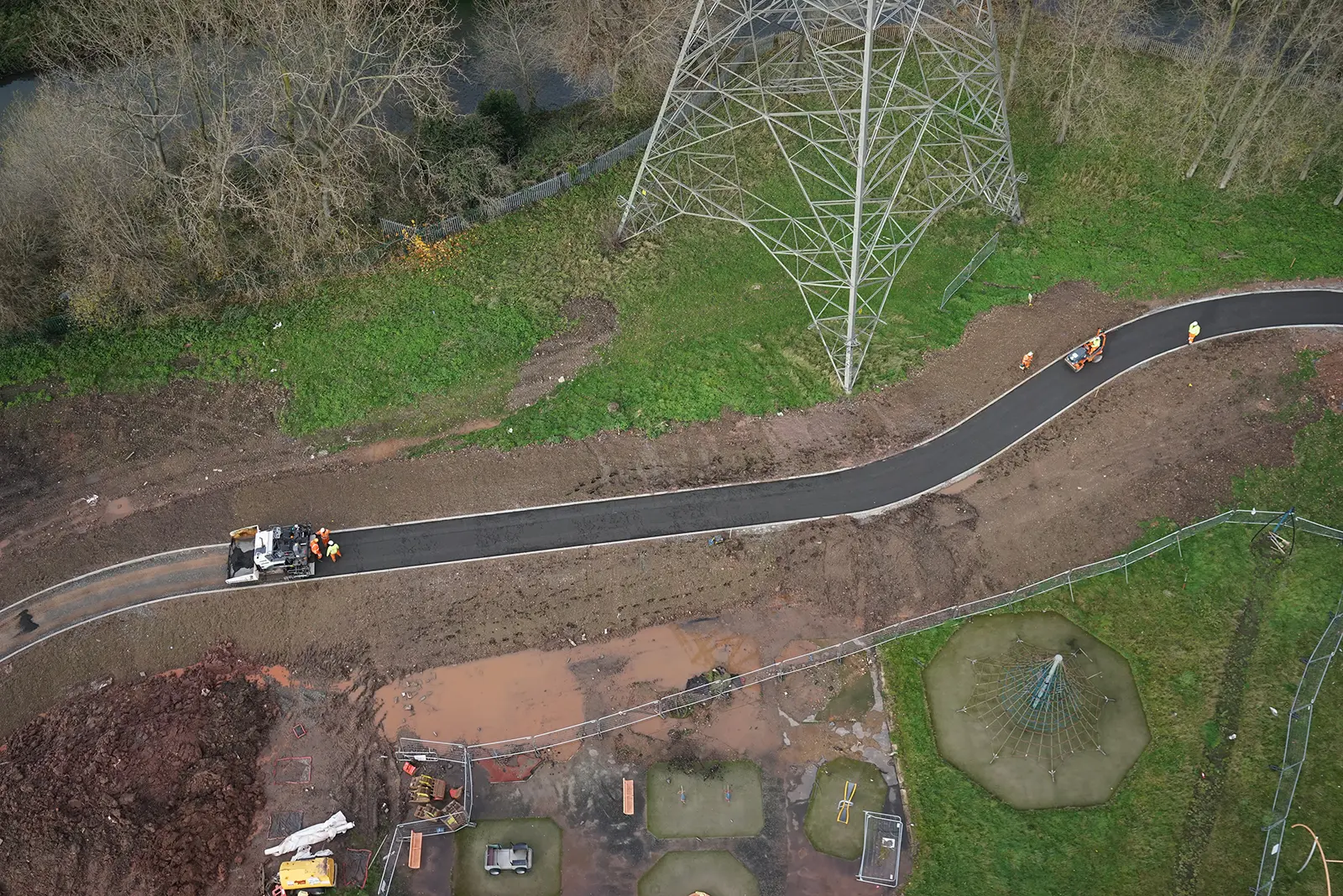Carbon negative aggregates from O.C.O Technology have been used for the first time as part of a groundbreaking asphalt mix that can significantly reduce the carbon footprint of surfacing works.
The O.C.O Manufactured LimeStone (M-LS) is one of the key components in a low carbon cycle path being built for Birmingham City Council as part of the Bromford Flood Alleviation Scheme, a project currently under construction by Jackson Civil Engineering for the Environment Agency.
Early calculations show the new low carbon foamed asphalt path, made from recycled aggregates and processed waste products, could bring CO2 savings of up to 90% compared with using a traditional hot AC20 asphalt mix.
Part of a trial scheme, phase I of the 2.5km cycle path has been built and work on the remainder is expected to start in June. It is projected that up to 70 tonnes of CO2 could be saved on its entire construction.

Stephen Roscoe, O.C.O’s Technical Director, said: “We are delighted Jacksons gave us the opportunity to use our M-LS for the very first time in a foamed asphalt application. As well as complying with the technical specification for use in asphalt, M-LS contributes to a reduction in carbon footprint for paving projects.
“We already supply into the block manufacturing sector and, because the manufacturing process enables us to create aggregate with different specifications for different applications. we believe it will become the aggregate of choice in the future.
“With Zero Carbon being a global target, the construction industry must source alternative, more sustainable products, to not only reduce the carbon footprint but to preserve the finite reserves of natural aggregate in the UK.”
O.C.O, which is a subsidiary of Grundon Waste Management, was one of a number of supply chain partners who contributed to the project.

Jackson’s Supply Chain Manager Andy Lusher said: “The cycle path provided an opportunity to look at the original design and ask ourselves how we could do this in a more carbon-friendly way. We brought our supply chain together to use their expertise and come up with a solution that was truly innovative.”
Andy Lusher believes that the success of this trial means Jackson can be confident in specifying low-carbon concrete and asphalt in future projects.
He said: “We’ve learnt lots of lessons from this trial and we know we can do something that pushes the boundaries but only with the full support and buy-in from our supply chain partners.”
M-LS is created by treating Air Pollution Control residues (APCr) from the Energy from Waste (EfW) sector with waste carbon dioxide gas. Because more CO2 is permanently captured than is used in the manufacturing process M-LS has been recognised as the world’s first carbon negative aggregate.
In 2011, O.C.O was granted End of Waste (EoW) approval from the Environment Agency – the first time any company in Europe had achieved such an accolade for an APCr waste stream and securing the aggregate’s position as a perfect example of the circular economy in action.
